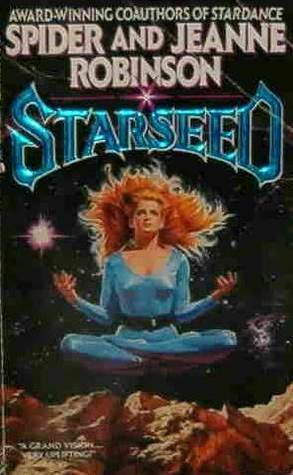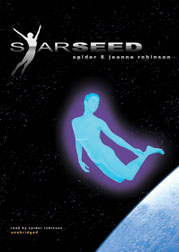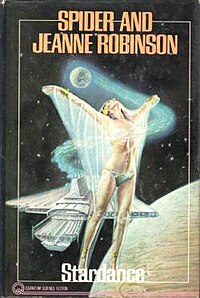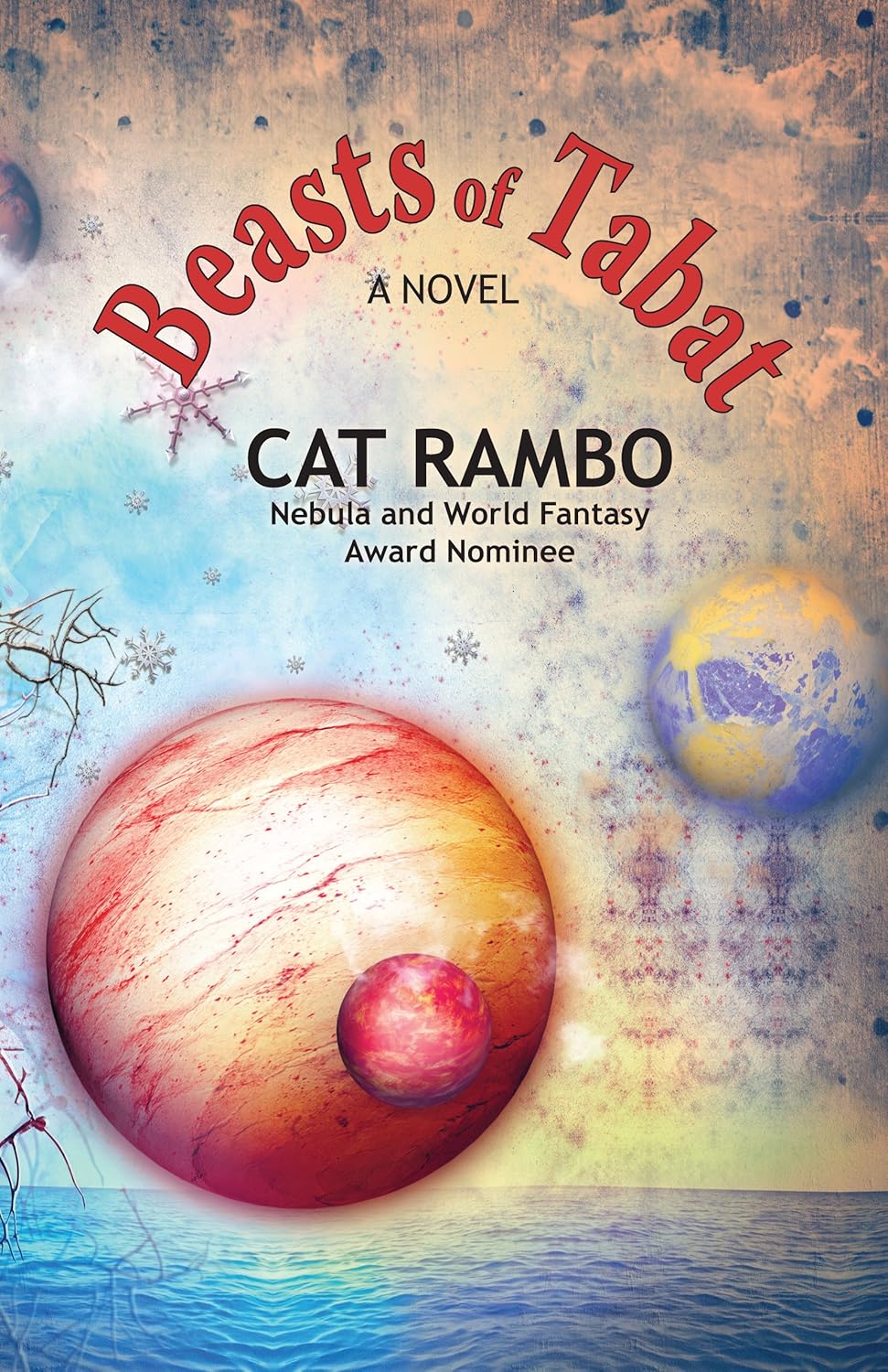 First appeared in Pulphouse as a serialized novel.
First appeared in Pulphouse as a serialized novel. - For part 1 of Stardance, click here.
- For part 2 of Stardance, click here.
- For the final novel in the trilogy, Starmind, click here.
Summary
Rain "Morgan" McLeod has been struggling with her dancing career on Earth as her lower back and knees pain her. Unable to dance, she contemplates euthanasia. She hears of Top Step, an asteroid orbiting earth. She can travel to it if she gives all she has to join the Starseed Foundation.
She and others travel to join the alien symbiosis which supplies all of one's needs. But she would never be able to return to Earth again. Her choice of career leaves her no choice. She leaves.
 She learns how to exist in zero gee and to become one of the star dancers. After an attack on Top Step by those who fear the symbiosis of the Stardancers, her boyfriend, Robert, drives a wedge between her two passions: the man she loves and the career she loves. Before joining the symbiosis, she must investigate who killed her friends.
She learns how to exist in zero gee and to become one of the star dancers. After an attack on Top Step by those who fear the symbiosis of the Stardancers, her boyfriend, Robert, drives a wedge between her two passions: the man she loves and the career she loves. Before joining the symbiosis, she must investigate who killed her friends.DiscussionRobinson's novels often convey aspects of his ethical
perspective on the universe, but this seems a full-on utopia--all needs provided for, all emotions soothed by Zen and zero gravity. Robinson spends the first part of the novel of gradually introducing us to this new way. The utopia is challenged only by those who hate, those with limited understanding. Part of that utopia is ridding one's self of religion, yet gaining spirituality. Religion, apparently has too much dogma telling people what to do.

Also, there's the Zen aspect, and the idea that minds could work together as one hive mind--both viewed as the ideal existence. A community/communes--groups working and loving together for the common good--flavors this as well. It's hard not to view Robinson's oeuvre as the fruition of his hippie era. Perhaps no other SF writer embodies these attributes more than Robinson.
The novel's second part is a kind of thriller and mystery that--if not especially mysterious--does enthrall. The first half lacks a plot dynamo, but the introduction to this foreign culture and environment does sustain reading. Its unity of vision also makes for a better novel as a whole, even if it lags behind the award-winning novella that spawned the series.
One might expect to return to Stardance's protagonists, but this novel gives us an interesting if oblique look at how the alien-human culture grows so near Earth.






